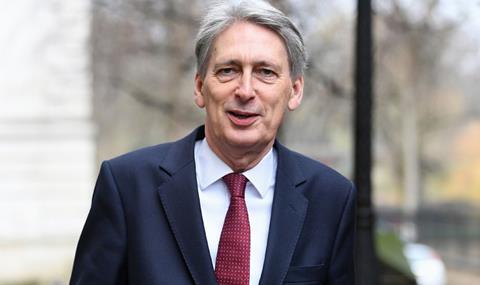
The chancellor Philip Hammond has frozen fuel duty, the HGV Road User Levy and vehicle excise duty (VED) in today’s budget but had little to offer in regards to tackling the UK’s chronic congestion.
In a statement striking a balance between strong growth and the future challenge of Brexit, Hammond revealed that the Office for Budget Responsibility (OBR) had upgraded GDP growth from 1.4% to 2%. However, the OBR says this will fall to 1.6% in 2018.
Here’s a snapshot of economic data announced by the Chancellor #Budget2017 pic.twitter.com/m3Lq5e1VtQ
— HM Treasury (@hmtreasury) March 8, 2017
FairFuel UK (FFUK) and the RHA welcomed the freeze in fuel duty. FFUK said: "the highest fuel duty in the world has been frozen again". But it questioned if the £690m for local authorities to tackle urban congestion, was anywhere near enough.
“A Conservative chancellor has missed yet again, a huge opportunity in not announcing a significant UK-wide roads investment plan, which has been independently proven to increase GDP four times more than HS2,” said FFUK founder Howard Cox.
The chancellor also promised £90m and £23m for the North and the Midlands respectively to deal with pinch points on the strategic road network (although this is from the previously announced infrastructure fund).
“In his spring Budget Philip Hammond, has failed to address the decades of under-investment in road maintenance,” said Howard Robinson, chief executive of the Road Surface Treatments Association (RSTA).
“His budget has no recognition that a well- maintained and efficient local road network supports the national economy. Instead we have a local road network that is increasingly Third World.”
RSTA was also dismissive of the £690m funding competition for local authorities to tackle congestion. “Some highway authorities have seen a 50% reduction in their road maintenance budgets. It is a pity that they will have to spend precious resources on competing for funding,” said Robinson.
The chancellor stood firm on the contentious issue of business rates, which has left some facing large hikes, stating the measure, which generates £25bn, was ultimately fiscally neutral and necessary. He did make a £300m fund available for councils to help the hardest hit businesses on a discretionary basis.
Hammond also confirmed the national living wage, as announced in the autumn statement, will rise to £7.50p/h from next month.













